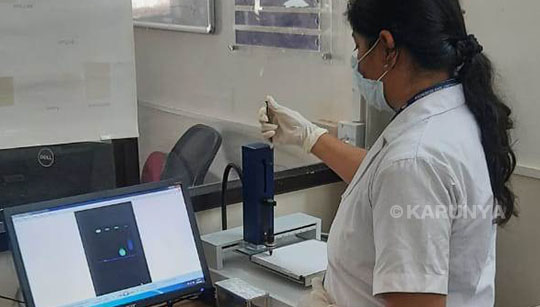Research Centres
Pre-clinical Animal House Facility for Drug Discovery (CPCSEA, Govt. of India approved facility)
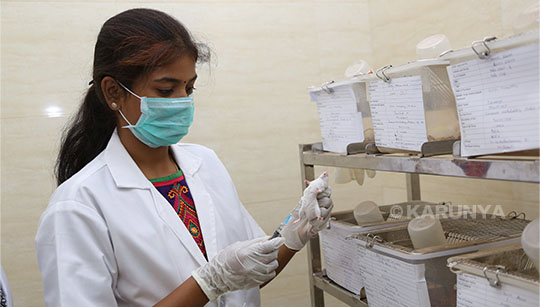
CPCSEA
Researchers, whose work requires either a direct or interdisciplinary involvement in animal experiments are fortunate, since the department provides them a modern, well-equipped and state-of-the-art facility for keeping, rearing and observing experimental animals. The Animal House facility was established in KITS to carry out preclinical research using animal models. The Facility has been registered with Committee for the Purpose of Control and Supervision of Experiments on Animals(CPCSEA)(RegistrationNumber1537/PO/a/11/CPCSEA) under the Ministry of Environment and Forests, Government of India.
Water Treatment research laboratory (Funded by DRDO, Govt. of India)
The Water Treatment Research Lab focuses on the development of biomaterial based treatment technologies for the removal of oxy anions from groundwater and wastewater sources. In addition, lab is equipped with equipment to isolate and characterize the metal metabolizing microbes. The outcome of the lab includes identification of a potential bacterium with hyper arsenic tolerance upto 1000mg/L arsenate and 800 mg/L of arsenite submitted with NCBI. A cost effective bamboo based column for house hold applications with cellulose rich bio adsorbent was developed for treatment of arsenic contaminated water. The facilities in the laboratory are used for both research and academics.
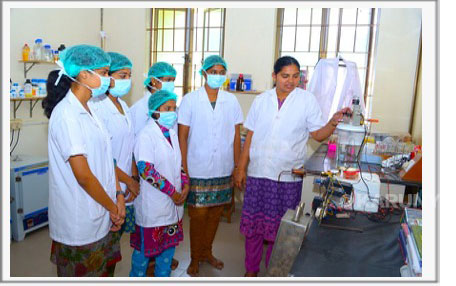
Water Treatment Facility
CANCER NANO-THERAPEUTIC RESEARCH LABORATORY
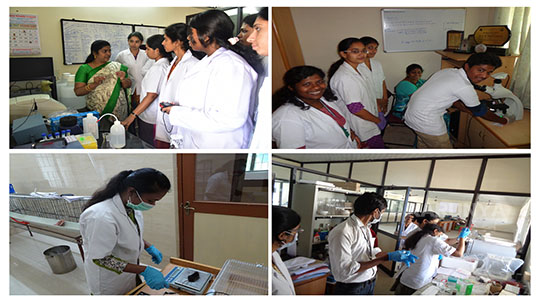
Cancer Research Laboratory
Cancer Nano-therapeutic Research Laboratory is a funded research lab established with a vision to find solution for the challenges in the field of chemotherapy for various forms of cancer. The lab was established initially with the research grant obtained from DST-SERB, Government of India as a funded project and further supported with an Extramural research grant by DBT, Government of India. Focus of this research lab is on molecular targeted therapy using liposome nano-formulated retinoid drug. Intense research from this lab is on inducing lung cancer in mice models using chemicals and cancer cell lines and treating the cancer with tissue targeted liposome encapsulated ATRA drug of nanometer size. Equipment available in the lab include Microscope with image analysis tools, Gradient PCR & Gel documentation system.
ALGAE BIOMASS RESEARCH LABORATORY
Algae Biomass Research Laboratory is an Industry supported research lab established under the Department of Biotechnology, School of Agriculture and Biosciences with a vision to“Research on micro and macroalgae”.Ongoing algae research addresses the issues on water, energy, environment and health, as micro and macro algae are known to perform photosynthesis and produce half of the atmospheric oxygen, while using simultaneously the greenhouse gas carbon dioxide to grow photo-autotrophically and reduce carbon foot print. Microalgae produce unique products like carotenoids, antioxidants, fattyacids,enzymes,polymers,peptidesandtoxins and hence find wide applications.
The research lab particularly focuses on biotechnology based production of value added products by means of cost effective and energy efficient process. Projects by DST-SERB,DBT and UGC enhanced the capacity of the lab by adding sophisticated equipment that cater to the R&D initiatives and train research scholars, undergraduate and postgraduate students and IAESTE interns. The lab is equipped with instruments like Algae Growth Chamber, Thermalcycler (PCR), and Microscope with documentation systems and deep freezer to carry out research work in the interdisciplinary areas of algal biotechnology.
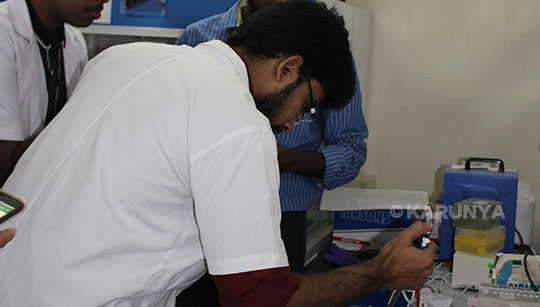
ALGAE BIOMASS RESEARCH LABORATORY
Biosafety Class - II
The Biosafety facility established belongs to the BSL Class-II category and houses a BSL 2B Biosafety Cabinet with a virus burnout attachment. This facility provides researcher to work on moderate risk pathogens such as Influenza virus, Hepatitis virus, Hog Cholera Virus, Rabies virus bacteria such as Aeromonas, Mycobacterium leprae, Haemophilus, Klebsiella, Closterdium tetani, Enterobactrial species and fungi such as Candida, Cryptococus and also parasites such as Ascaris, Entamoeba, Plasmodium, Taenia solium, Trypanosoma etc
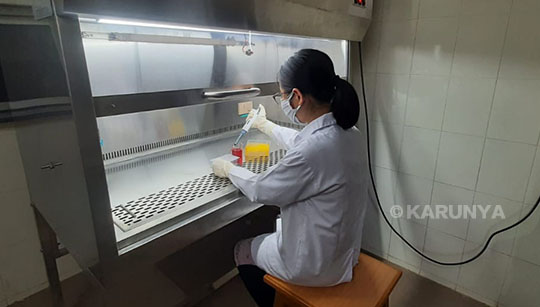
Biosafety Class-II
Genomic Facility
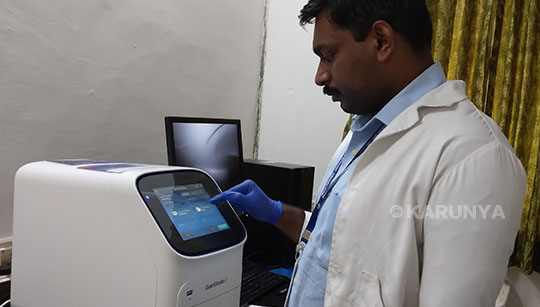
Genomic Facility
The genomics facility recently established is one of the lab focusing on cutting edge technologies. The Real time quantification DNA and RNA during its amplification is a technology used in detection of the desired nucleic acids with applications in food, health care and environmental issues. The lab helps students and scholars in monitoring and quantifying gene expression for clinical diagnosis such as cytokine profiling, cancer, diagnosis of infectious agents especially viruses and also in the assessment of viral load which helps in determining antiviral treatment.
Phytotherapeutics
The phytotherapeutic lab pivots around the medicinal properties and applications of Indian plant extracts to address various modern-day health concerns such as diabetes and cancer. Established with financial support from DST-SERB, the lab is equipped with a High-performance thin layer chromatography (HPTLC) among other instruments which play an important role in identifying and quantifying various phytochemicals present in plants. As a part of the lab, students are trained to identify and analyse these phytochemicals, synthesize nanoparticles and characterize them targeted towards plant-based therapy. The lab is accessible to Ph.D. scholars, IAESTE interns, Undergraduate and Postgraduate students working along the lines of medicinal biotechnology involving traditional Indian medicine. The lab support research resulted in around 54 research articles and 5 patents.
